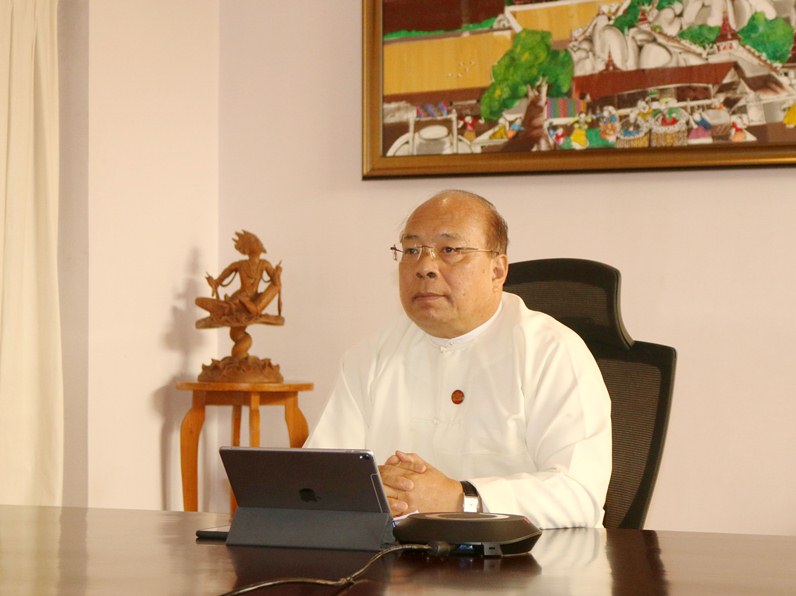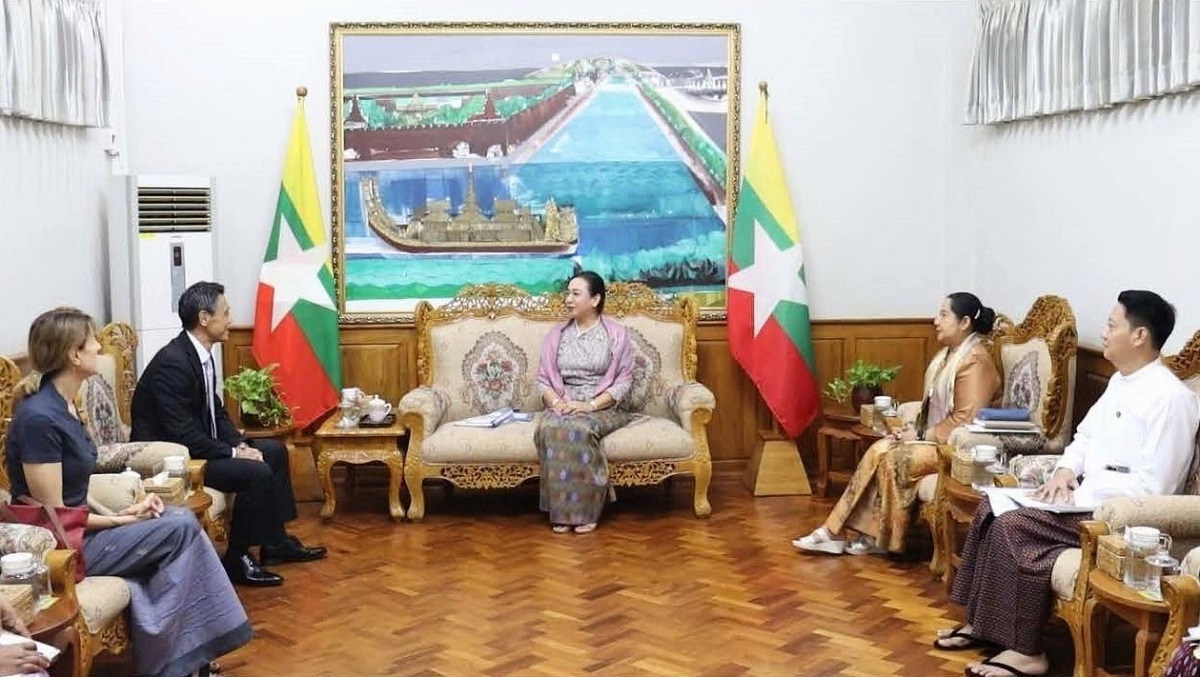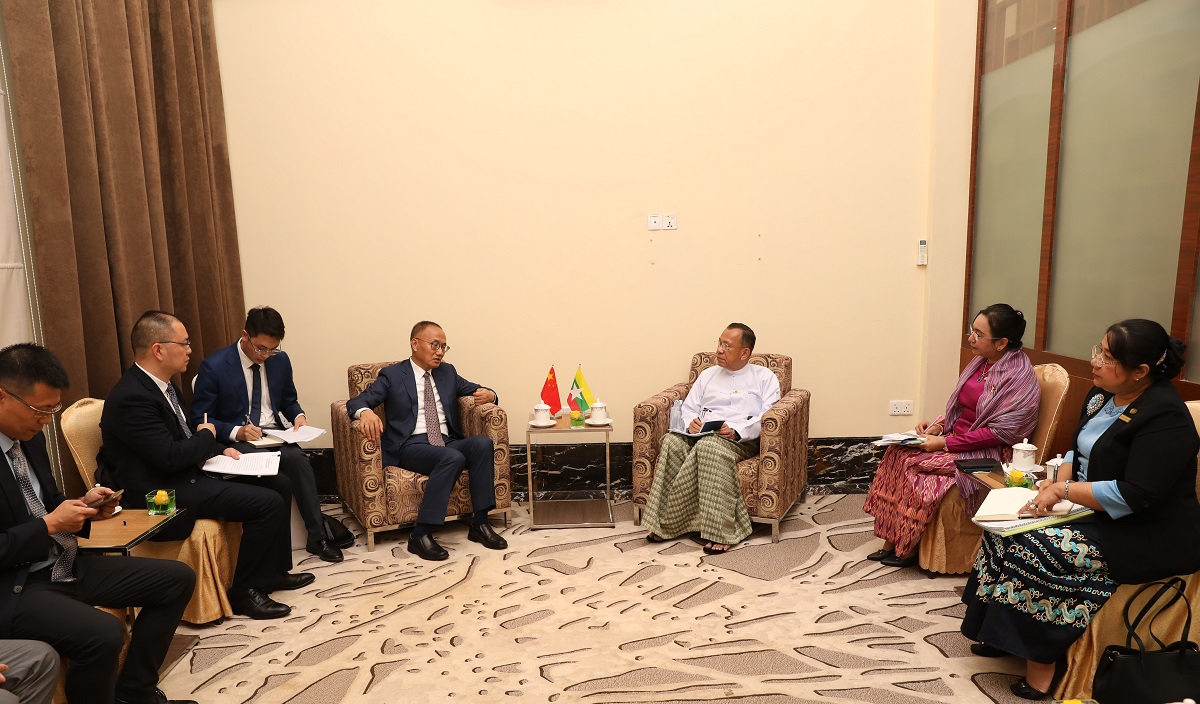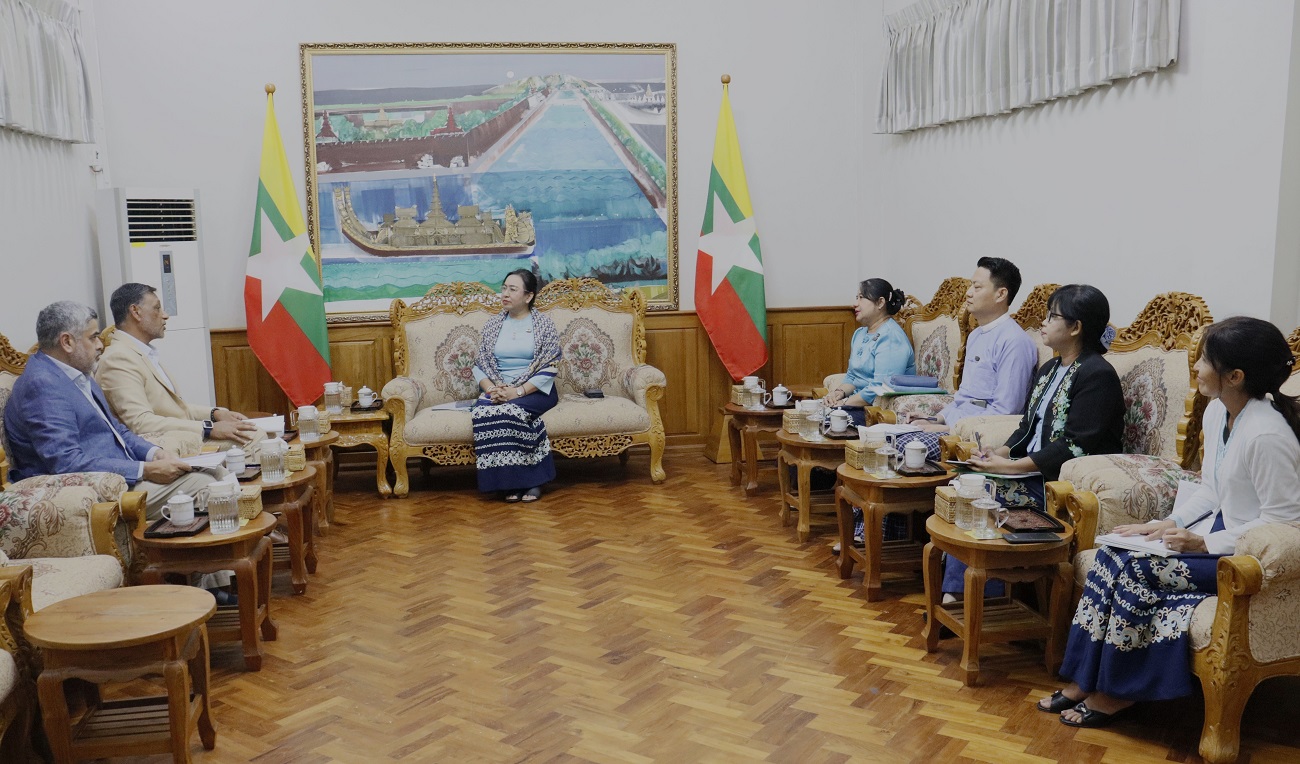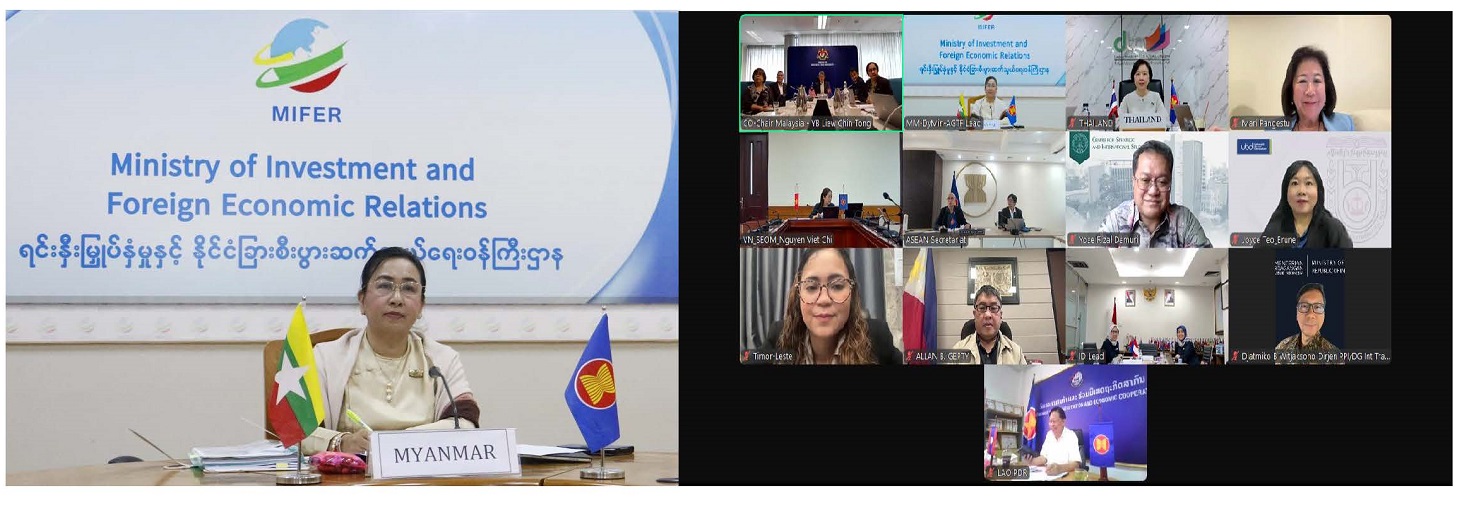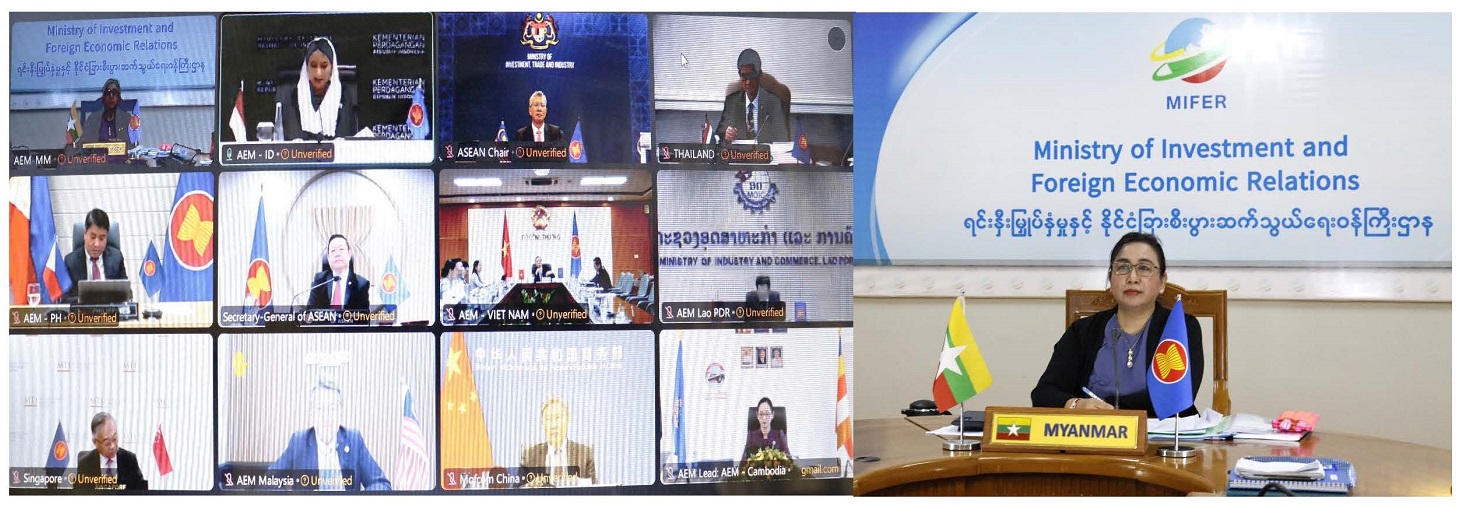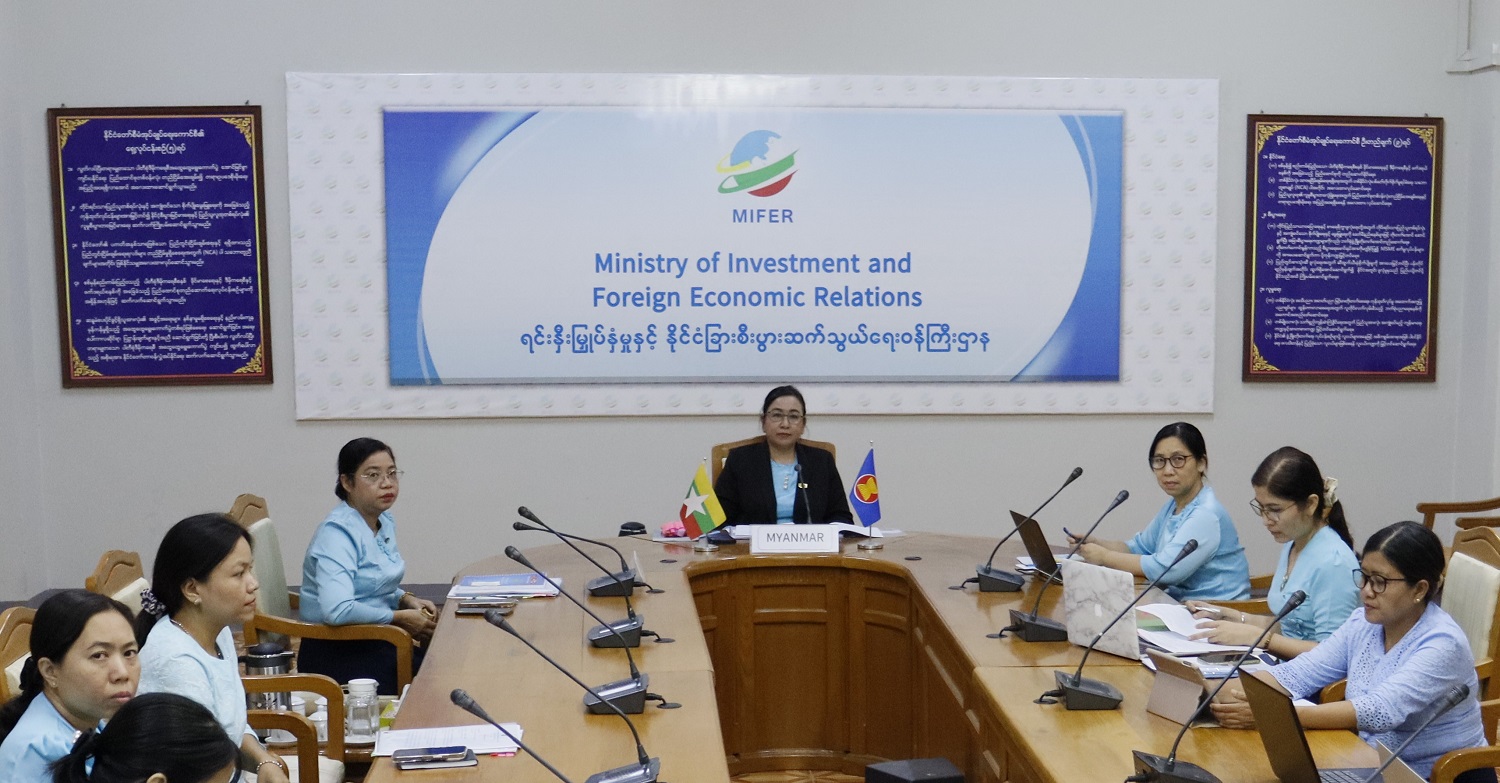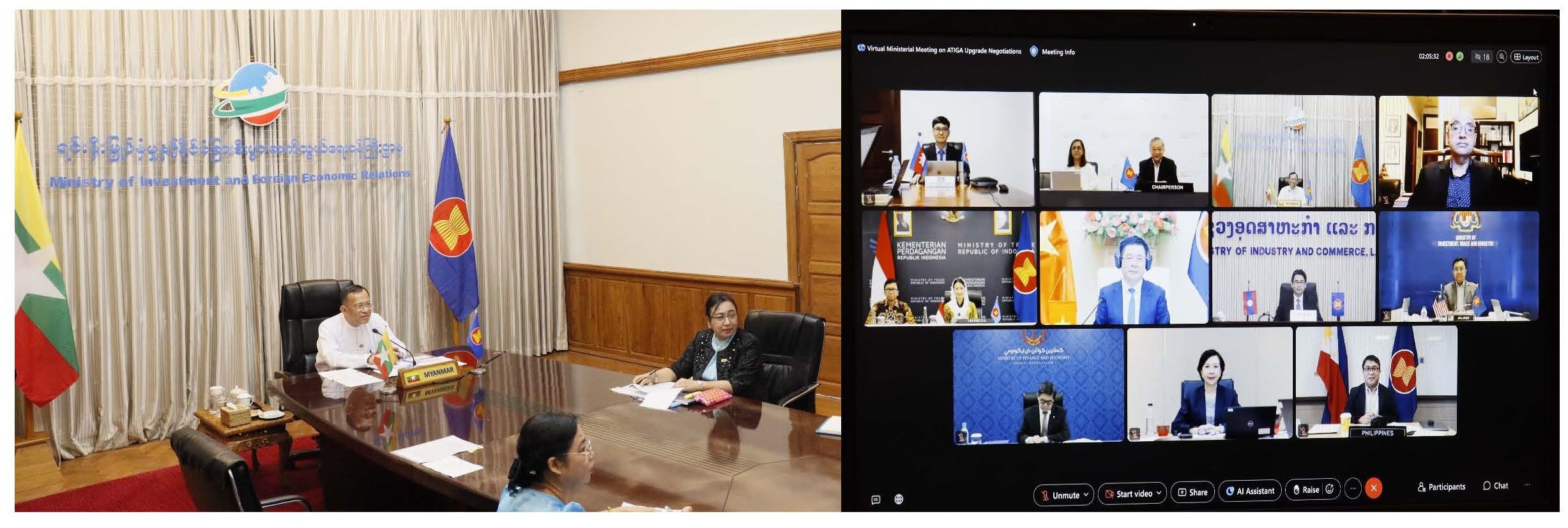14 January 2020
U Thaung Tun, Union Minister for Investment and Foreign Economic Relations today presented a keynote address during a virtual workshop titled ‘COVID-19 and Beyond: Multilateral Cooperation to Enhance Resiliency’, organized by the US-based Asia-Pacific Center for Security Studies (APCSS).
Facilitated by Dr. Miemie Winn Byrd, participants used the event to share updates, insights, and regional perspectives on respective responses to the COVID-19 pandemic and to identify recommendations aimed at enhancing assistance provided by the US and partners.
The Union Minister drew attention to recent progress made in the fight against COVID-19, citing global economic recoveries now occurring, vaccine distribution drives, and the potential for a newfound sense of bipartisanship and multilateral cooperation, noting that at some point in the coming months, rates of injection would overtake rates of infection and that the light at the end of the tunnel would begin to shine brighter.
The Union Minister expressed a belief that the pandemic has helped bring to the fore three distinct yet intertwined challenges, namely climate change, inequality of opportunity, and major geopolitical re-alignments.
On climate change, the Union Minister noted that while COVID-19 may be the worst pandemic experienced within our lifetimes, it is not the first nor will it be the last. Numerous diseases have emerged in recent years as a result of unchecked human trespass into natural ecosystems. The Union Minister also noted that Myanmar continues to contend with more extreme storms, more damaging cyclones and more intense heatwaves, in addition to changing disease patterns. However, the Union Minister also highlighted that there was still good news to be found, stating that our people are turning toward more environmentally friendly ways of living. He said that Myanmar was witnessing the growth of a new generation who are speaking out in opposition to climate change and in support of more climate-friendly policies – taking advantage of Myanmar’s new era of openness, and freedom of expression.
Regarding rising inequality, the Union Minister stated that while Myanmar has remained amongst the region’s fastest-growing economies, with GDP expected to grow 6 percent in 2021, policymakers and partners must contend with the fact that not all of Myanmar’s people have truly benefitted from this growth, with rural areas still lagging in access to public services, and with unequal access to secondary education exacerbating a range of inequalities, including gender inequality.
Addressing geopolitical shifts accentuated by COVID-19, the Union Minister called for increased collaboration able to span ideology and culture, and for partners to direct every effort toward ensuring the proven and potential benefits of globalization are shared more equitably across society.
“In this more complex, multipolar world, no man, or woman, can be an island unto him or herself. No one country can lead alone.”
The Union Minister made three concrete recommendations that could contribute to stronger US-Myanmar ties and broader multilateral partnerships.
First, he underscored the need for the fast-tracking of transitions toward more renewable sources of energy. In this regard, the Minister welcomed President-elect Biden’s commitment to rejoining the Paris Agreement, and updated participants on Myanmar’s recent Nationally Determined Contribution, including reducing CO2 emissions, increasing the share of renewable energy and reducing net emissions from the forestry sector.
Second, the Union Minister called for further support to the region’s digital transition, noting that, with relatively modest investments, countries like Myanmar can offer almost universal access to e-government, e-payment and e-commerce, and telemedicine, and help facilitate the transfer of international skilled labor throughout the world.
The Union Minister concluded by calling for continued US engagement in the Asia Pacific Region. He urged countries to reign in tendencies toward strategic competition in favor of strategic cooperation. He said instead of viewing rising Asia as uniquely a security challenge, countries should see the changes in the region as an economic opportunity.
The Union Minister also took the opportunity to call for increased US investment in Myanmar, noting how US investment was welcomed to play a key role in catalyzing Myanmar’s broader economic recovery, stating:
“I believe that Myanmar and the region would benefit greatly from a US that seeks to leverage its strengths in response to the Asia that exists today, with all its complexity. Just as the US and ASEAN have been cooperating to advance our mutual interests for 40 years, let us reign in tendencies toward strategic competition in favour of strategic cooperation”
“The US has some of the world’s greatest companies, world-class technology, and unparalleled connections to global supply chains. And yet, US firms in Myanmar are too few, and those that are here are shrinking in relative terms compared with regional investors.”
The Union Minister also used the opportunity to express sincere thanks to the United States Agency for International Development for its contribution to Myanmar’s COVID-19 response – including the provision of medical equipment and PPE, upgrades to the National Health Laboratory, and support channeled through the multi-donor Access to Health Fund.
The Honolulu-based APCSS is a center of excellence renowned for its dedication to regional and global security issues, nurturing relationships, and cultivating new networks among security practitioners and national security establishments throughout the Asia-Pacific region.

